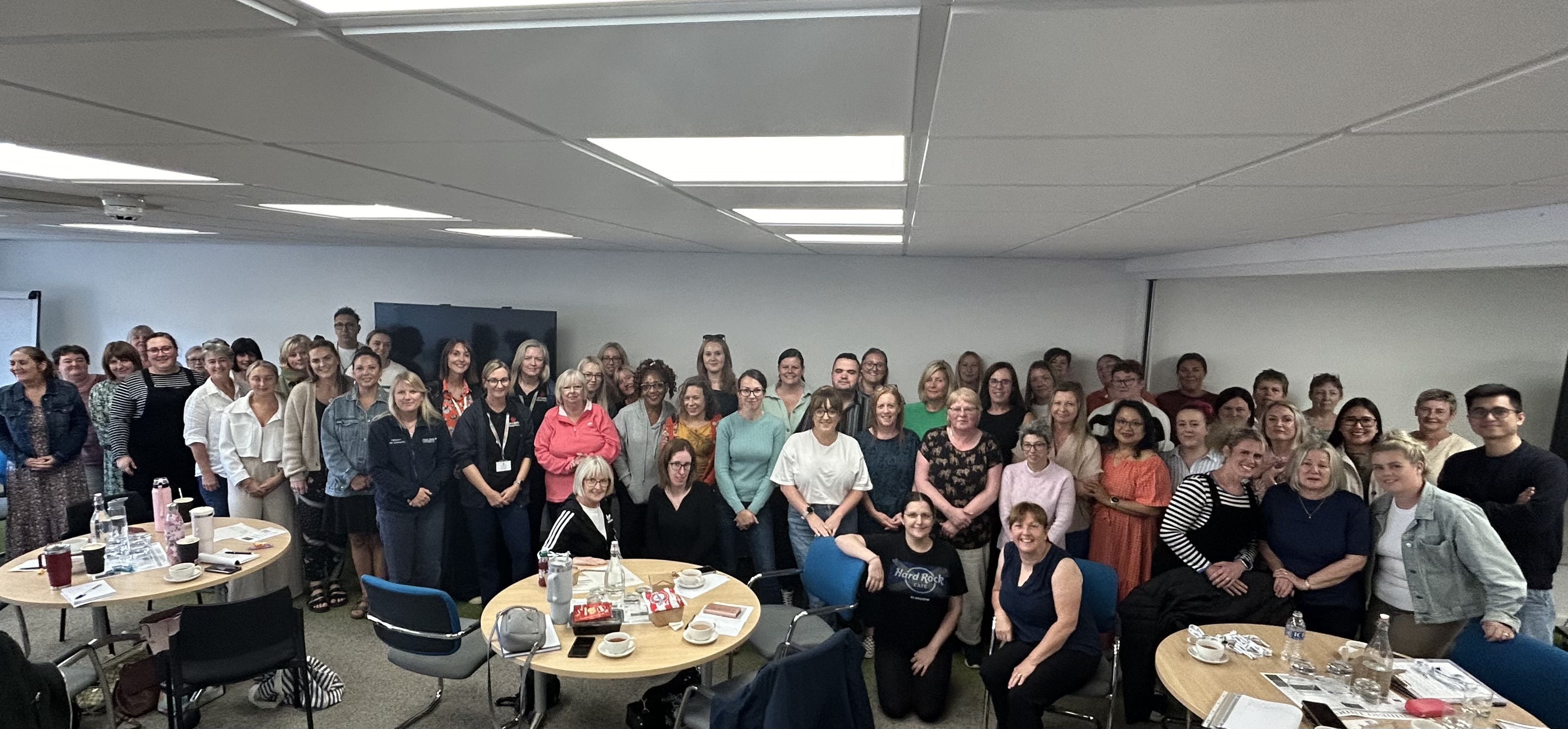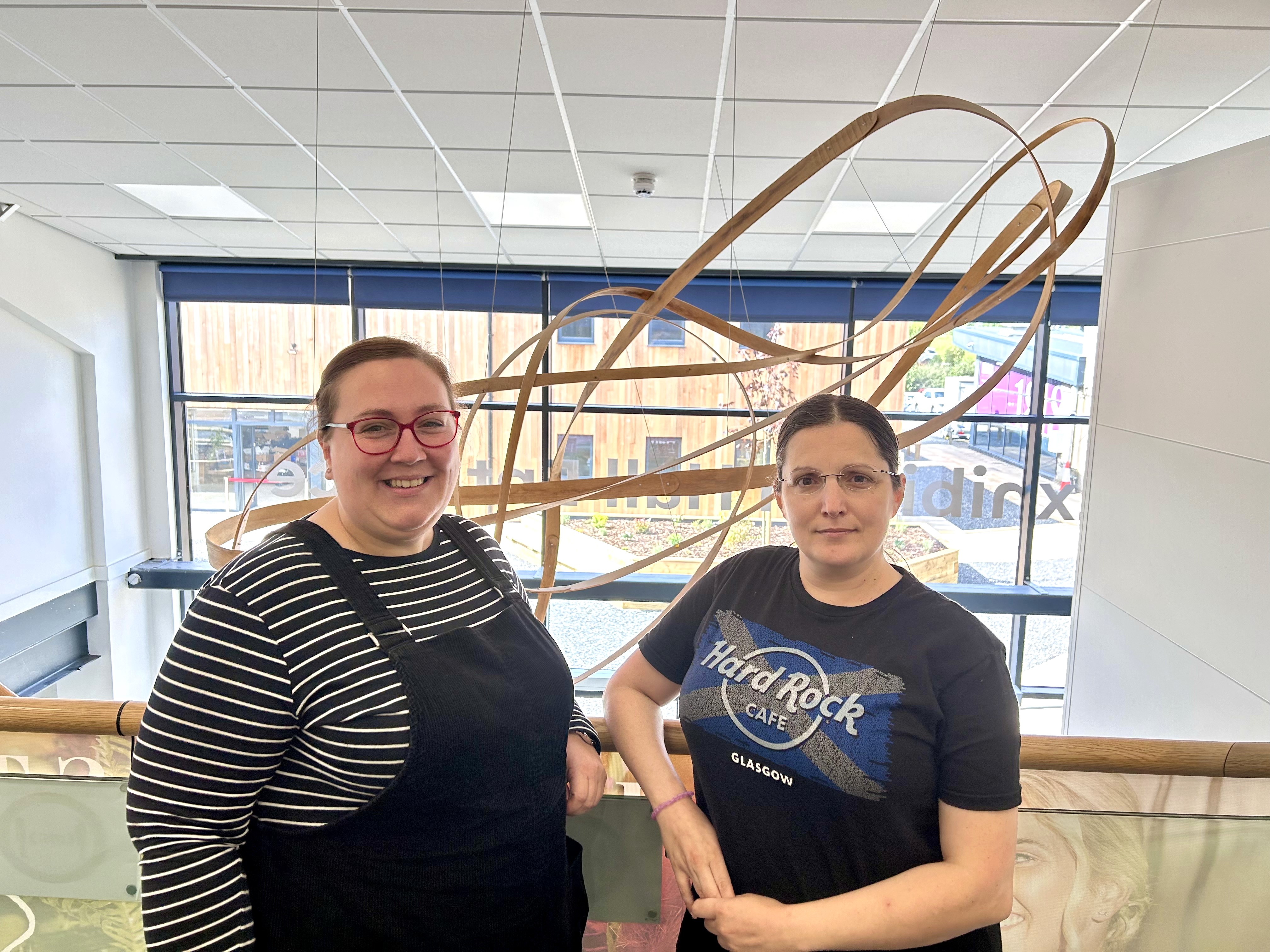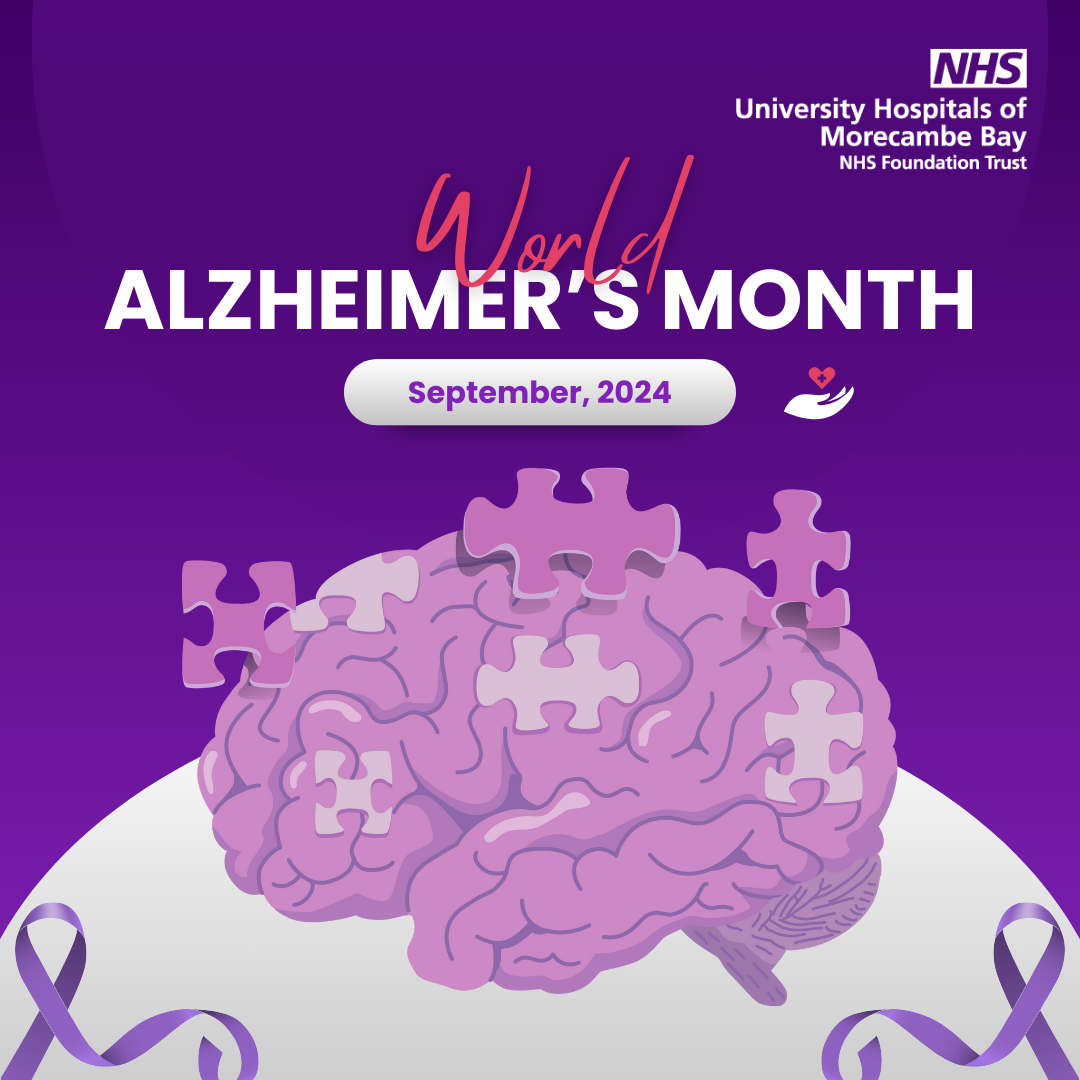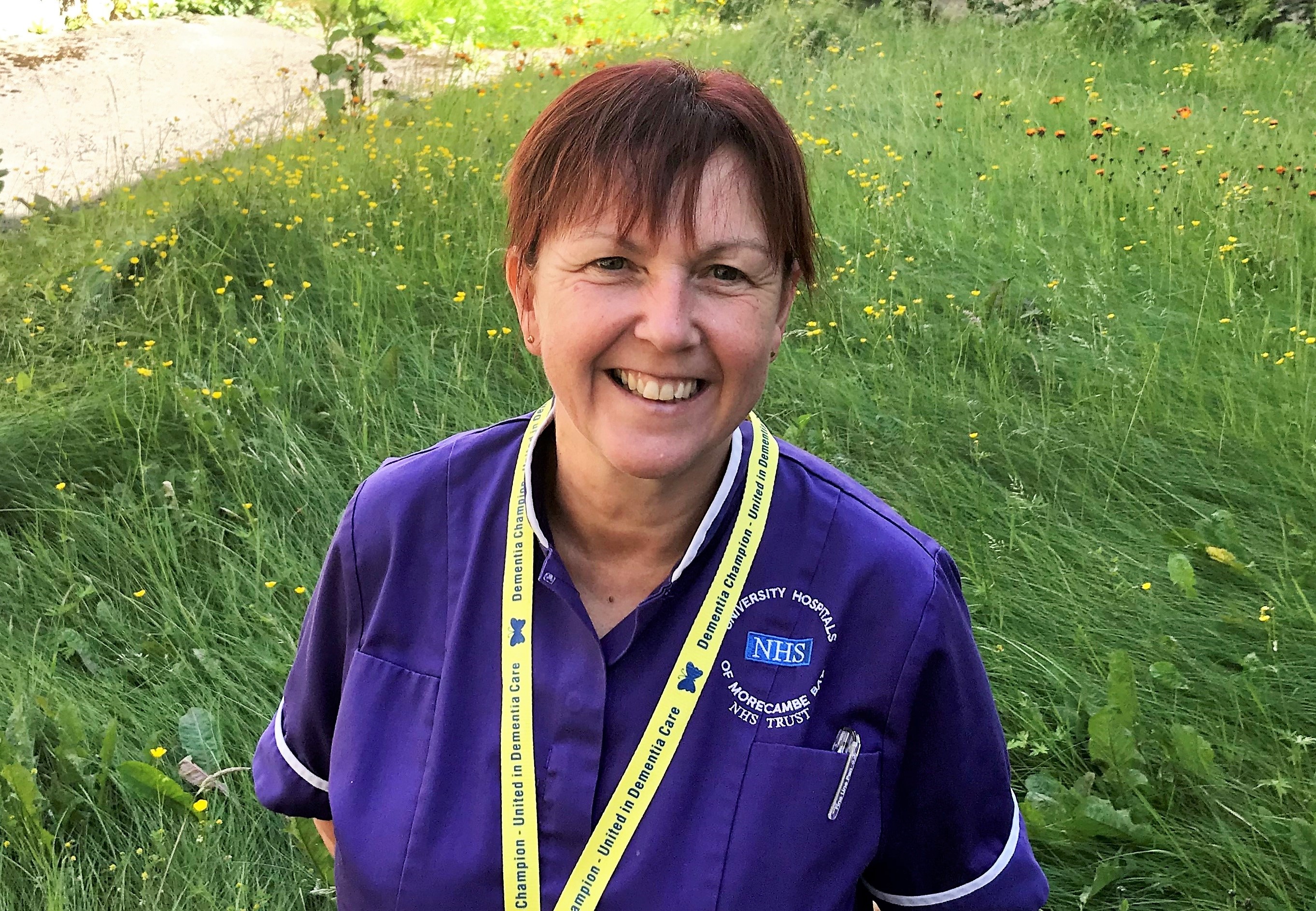 World Alzheimer’s Month and World Alzheimer’s Day, both of which take place every year in September, are being supported by University Hospitals of Morecambe Bay NHS Foundation Trust (UHMBT).
World Alzheimer’s Month and World Alzheimer’s Day, both of which take place every year in September, are being supported by University Hospitals of Morecambe Bay NHS Foundation Trust (UHMBT).
Throughout September, the Trust is highlighting its volunteer Dementia Champions and services for people living with dementia to raise awareness of the support that is available to individuals, families and unpaid carers.
World Alzheimer’s Month is an opportunity for people around to raise awareness of dementia and to address the stigma and discrimination that still exists around the condition. Nearly one million people in the UK live with dementia - that’s almost a million families affected by dementia. World Alzheimer’s Day on Saturday 21 September is also a global effort to raise awareness of Alzheimer's disease and other forms of dementia.
Dementia is a huge and growing health crisis and is the leading cause of death in the UK. Every three minutes, someone in the UK develops dementia.
 UHMBT has a large and enthusiastic team of volunteers called Dementia Champions who do this in addition to their paid jobs with the Trust. On Tuesday 3 September, the Dementia Champions gathered for a training event and to mark World Alzheimer’s Month. Around 100 colleagues were there to gain more knowledge on how to improve life and care for people living with dementia.
UHMBT has a large and enthusiastic team of volunteers called Dementia Champions who do this in addition to their paid jobs with the Trust. On Tuesday 3 September, the Dementia Champions gathered for a training event and to mark World Alzheimer’s Month. Around 100 colleagues were there to gain more knowledge on how to improve life and care for people living with dementia.
Two of the Dementia Champions (pictured), Hannah Shaw, a Discharge Coordinator for UHMBT at the Royal Lancaster Infirmary (RLI) and Dani Petrova, a Clinical Support Worker for UHMBT at Furness General Hospital (FGH) in Barrow, spoke about why they volunteer.
Hannah said: “I have been a Dementia Champion for nine years. I get a great sense of satisfaction knowing I’m helping someone. From a personal point of view, my family went through dementia. When I came to work in care, I realised that there was a difference I could make to people. Being a Dementia Champion is completely voluntary and we meet four times a year for training. People ask why we do it and I always say it’s because we care, and we want to make a difference.
“As a Discharge Coordinator, being a Dementia Champion helps with planning a person’s safe discharge from hospital as we have links with the Trust’s Admiral Nurses, Age UK, Social Services, the Dementia Hub and similar organisations. I want people to feel safe and well looked after, and to help families to get the support they need to manage things safely.”
Dianne Smith (pictured below), the Trust’s Dementia Matron and Consultant Admiral Nurse for dementia, leads the Dementia Champions and provides the valuable training.
Hannah said: “Dianne is amazing. She has led the Dementia Champions for many years. If someone hasn’t had a diagnosis, we can assist with that too by helping them to get an appointment with the Memory Clinic through their GP.”
Dani said: “I have been a Dementia Champion for around three years. I just want to help and make a difference – to make things better for people.
“I work in the A&E at Barrow, and we see people who have not been diagnosed with dementia. As a Dementia Champion, I can recognise the signs and symptoms, so I speak to the doctors and see if they can help to get a diagnosis for the person. As a Clinical Support Worker, I am one of the first people that patients come into contact with at the A&E, so I try to make sure they are ok and look after them.
 “I am very passionate about our Trust’s ‘Passports of Care’ and make sure they are always available on the wards. The passport has the person’s details on them and their likes, dislikes, medication, contact details and other information. I try to make sure they have one before they leave hospital to go home or to a care home, so if they need to come back, we have all of the important information in the passport. People are usually very happy to fill the passport in once they understand what it is for and how it helps.”
“I am very passionate about our Trust’s ‘Passports of Care’ and make sure they are always available on the wards. The passport has the person’s details on them and their likes, dislikes, medication, contact details and other information. I try to make sure they have one before they leave hospital to go home or to a care home, so if they need to come back, we have all of the important information in the passport. People are usually very happy to fill the passport in once they understand what it is for and how it helps.”
UHMBT also has specialist dementia professionals known as Admiral Nurses who are continuously supported and developed by the charity Dementia UK to provide life-changing support for families affected by all forms of dementia.
Dianne Smith, Dementia Matron for UHMBT based at the Royal Lancaster Infirmary (RLI), is a Consultant Admiral Nurse, and Marina Woodburn and Sarah Doughty are Admiral Nurses on a job share basis at Furness General Hospital (FGH) in Barrow.
Dianne said: “As Admiral Nurses we not only support our patients, but also create a care plan with a bespoke assessment for dementia right at the beginning a person’s time in hospital. Our recommendations are person-centred and include management of symptoms associated with dementia. We work with people with either diagnosed or undiagnosed dementia who are unsettled, agitated, confused and delirious, and at risk.”
UHMBT’s strategy is focused on Putting Patients First and the Trust is committed to helping people living with dementia to stay independent for longer.
Another UHMBT initiative is the recently implemented ‘Care Partner Programme’. UHMBT is eager to support people who want to be involved in the care of their relative or friend during their time in hospital. This can help the patient to feel more settled in an unfamiliar environment such as a busy hospital ward or unit. People may already be involved in the person’s care at home and have a lot of knowledge and experience regarding their preferences and what makes them comfortable. The loved on or carer will be called a ‘Care Partner’ and will wear a Care Partner lanyard while on the ward.
 Staff explain to the patient’s loved one or carer the level of care they can safely provide, any limitations or restrictions due to the patient’s current illness, and infection control procedures such as hand washing. Staff will also check in with the Care Partner to see how they are feeling and if they still wish to be involved. Anyone interested in being part of their loved one’s care, can speak to one of the nurses on the ward. The patient must give their consent (if they are able), to be cared for by a Care Partner.
Staff explain to the patient’s loved one or carer the level of care they can safely provide, any limitations or restrictions due to the patient’s current illness, and infection control procedures such as hand washing. Staff will also check in with the Care Partner to see how they are feeling and if they still wish to be involved. Anyone interested in being part of their loved one’s care, can speak to one of the nurses on the ward. The patient must give their consent (if they are able), to be cared for by a Care Partner.
UHMBT also supports The Butterfly Scheme which provides a system of hospital care for people living with dementia or who simply find that their memory isn’t as reliable as it used to be. Memory impairment can make hospitalisation distressing, but it needn’t be.
In hospital, many members of staff can pass through a patient’s life each day and in order to deliver appropriate care, they need to know that a patient has dementia or memory impairment and how to support them; this is where the Butterfly Scheme comes in. The butterfly symbol is an active request for support, empowering people with dementia and their carers to personalise the care they receive.
In addition to this, UHMBT has supported John’s Campaign for many years. John’s Campaign supports loved ones and carers to be with a person who is living with dementia in hospital.
The public can contact the national Admiral Nurse Dementia Helpline for support with any aspect of dementia on 0800 888 6678 or helpline@dementiauk.org
Other useful contacts:
END

